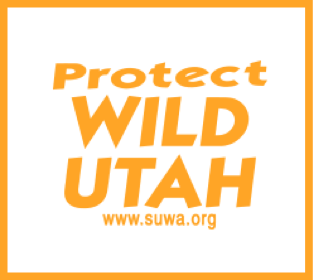|
Southern Utah Wilderness Alliance * Colorado Wildlife Federation * Western Colorado Congress * Wilderness Workshop * Colorado Environmental Coalition For Immediate Release: October 20, 2009
Citizens from western states, including sportsmen groups and conservationists, applaud today’s announcement by Department of Interior (DOI) Secretary Ken Salazar that the agency will investigate Bush Administration policies fast-tracking oil shale development. The agency also announced that it intends to open some public lands to a second round of research, development, and design (RD&D) projects. If RD&D processes prove viable, lessees will have a preference right to another 480 acres for production of oil shale. New policies give priority to applications that actually consider water and energy needs and impacts on the environment and local economies. These considerations were not contemplated in Bush Administration policies. Secretary Salazar’s announcement makes it clear that DOI will assess the significant impacts associated with oil shale development more prudently under his watch than they did during the last administration. This announcement represents a significant slowdown from the reckless rush toward development of the past. “Commercial oil shale could drastically impact critical wildlife habitat along with Colorado’s other natural resources,” said Bob Elderkin, a Colorado Wildlife Federation member and former Bureau of Land Management oil and gas regulator. “”It’s important that the BLM do a through environmental assessment that determines what the immediate and long-term consequences of commercial oil shale before any approval for industrial production is granted.” Elderkin noted that under the lease terms, the trigger for conversion to commercial leasing is based only on an economic evaluation. “The impacts on all resources need a full evaluation so the public and local communities can decide whether the benefits of oil shale out weight the inevitable loss to Colorado’s wildlife and other natural resources,” added Elderkin, a veteran hunter, outfitter and Silt resident who worked in Colorado during the first oil shale boom. As of now, oil shale technologies use too much water, require too much energy, and cause far too much impact to public land, local economies, and traditional ways of life to make dreams of commercial development viable. “Current research sites are still a decade or more from providing any type of significant findings on air, water, wildlife impacts. This round of parcels will include significant amounts of land in Wyoming, Utah and Colorado” stated Joe Neuhof, Colorado Environmental Coalition in Grand Junction. Millions of acres of lands containing oil shale deposits are already in private hands and there has been no activity on public lands handed over during the first round of RD&D leasing. So, significant questions remain whether leasing additional federal lands is warranted. Oil shale technologies have not been proven technically feasible, commercially viable, and environmentally sustainable. “While we disagree that industry needs a second round of RD&D leases for oil shale, the decision by Secretary Salazar to permit industry to seek such leases is a step in the right direction towards ending the debate on oil shale development in Utah,” said Stephen Bloch, Conservation Director for the Southern Utah Wilderness Alliance. “If industry cannot demonstrate that producing oil from shale rock can be done in an environmentally sound manner, one that protects our air, water, and wildlife, then it has no place on public lands.” Contacts:
|
|
|

 Southern Utah Wilderness Alliance
Southern Utah Wilderness Alliance
Protecting Utah's Redrock Country
